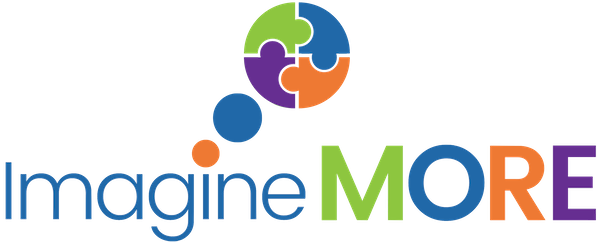A good life for a person with a disability, a life that is meaningful, fulfilling and valued, doesn't just happen. Jan Kruger discusses the importance of Vision
Jack’s Vision – The World is His Oyster
My husband and I have four children, that each has unique strengths, interests, talents and aspirations. When each of our three girls was born our dreams for their future soared with the wonder of what they will achieve and become under our guidance.
When our youngest Jack was born our experience was the opposite: a label was thrust upon him and it seemed instead of celebrating his birth with family and friends we found ourselves reassuring people that Jack was welcomed into our family, he was not a little being to be feared. It was a confusing time. The medical model focus on his deficits did not help.
From the moment Jack was born we naturally became very protective of his rightful passage to be valued and contributing member in his local community, however, we didn’t articulate this yearning with as much confidence as we do now. It was hard to find words to express how I was feeling.
Over the years we attended a lot of workshops and conferences to hear from other families further along the road than ourselves. I look back on notes from workshops where there were sessions on “developing a vision for the future” but it took us a number of years before we actually articulated Jack’s vision for the future on paper. We certainly had the seedling of a Vision that led us to choose his local preschool and school for Jack, but we needed to think beyond school.
We needed to imagine Jack fulfilled in meaningful work, where he would live, with who, how he could be a vital part of his local community.
It helped to state what we didn’t want for Jack. We knew we didn’t want Jack to live a segregated life where he only spent time with other people with a disability. We knew we didn’t want Jack to live in a congregated setting such as a group home. We didn’t want Jack working in a mind-numbing, meaningless job.
We wanted Jack to have the good things in life, but we needed to clearly articulate Jack’s vision for his future. We knew this was a road less travelled, but one worth all our efforts to be realised.
Once we were clear about what we didn’t want for Jack’s future we spent time crafting a Vision for Jack. We started with “Who is Jack? What are his interests, what are his strengths and what are our dreams for his future that is ordinary for people without a disability”. I found this easier to do if I didn’t focus on his disability and instead imagined what was possible for all of my children.
Why would/should it be any different for Jack? And once the dreaming had occurred it was easier to then think about what supports would be needed for Jack to realise this Vision to get the good things in life.
We find any time we are meeting people in a new community, for example, a new school, we find sharing our Vision for Jack helps people understand where we are heading and how they can be involved. Jack’s vision offers a positive introduction to who he is rather than being defined by his diagnosis with a focus on his deficits. We find when we share Jack’s interests and skills with other people this opens up opportunities for Jack to connect and do things with other kids. Identifying similarities brings people together.
We find it is important – even essential – to hold before us a positive, well-articulated vision for Jack that will help him get the good things in life that we all want: close family, friends, meaningful work with valued contribution, places we feel a sense of belonging.
Now that our Vision is clearly articulated we are always referring to Jack’s vision for the good life to help us in making a decision when faced with many choices. Jack’s vision has been particularly helpful in planning for the NDIS.
As part of our vision for Jack, making and maintaining friendships is at the core. Therefore before we put any paid supports in place we ask ourselves is there anybody that could provide this support in a freely given way. We don’t want Jack’s life full of people paid to be there. This leads to loneliness not friendships.
Developing a Vision can take time, and it is always changing and evolving. Jack’s vision changes regularly, not drastically, but we are always refining it. This is a true indicator that Jack’s vision has purpose and meaning. It is our compass to guide our decisions to get Jack closer to where we dream him to be a connected contributor in the heart of his community where he is known and loved.
We want Jack to be the driver of his vision for the future; therefore we are always talking to him about his ideas for his first job and his career, where he might live and with whom. This seems very natural as we are often talking about similar ideas with our girls. We talk about University, what happens at University and we bring his attention to what jobs people have in the community.
We also use his dreams of being a businessman and his dream to be a car owner (a convertible preferably) to motivate Jack to engage with his reading as we see reading as an extremely important skill to attain to help him navigate his community now and in the future.
We are looking forward to seeing where Jack will make his mark in the world.
